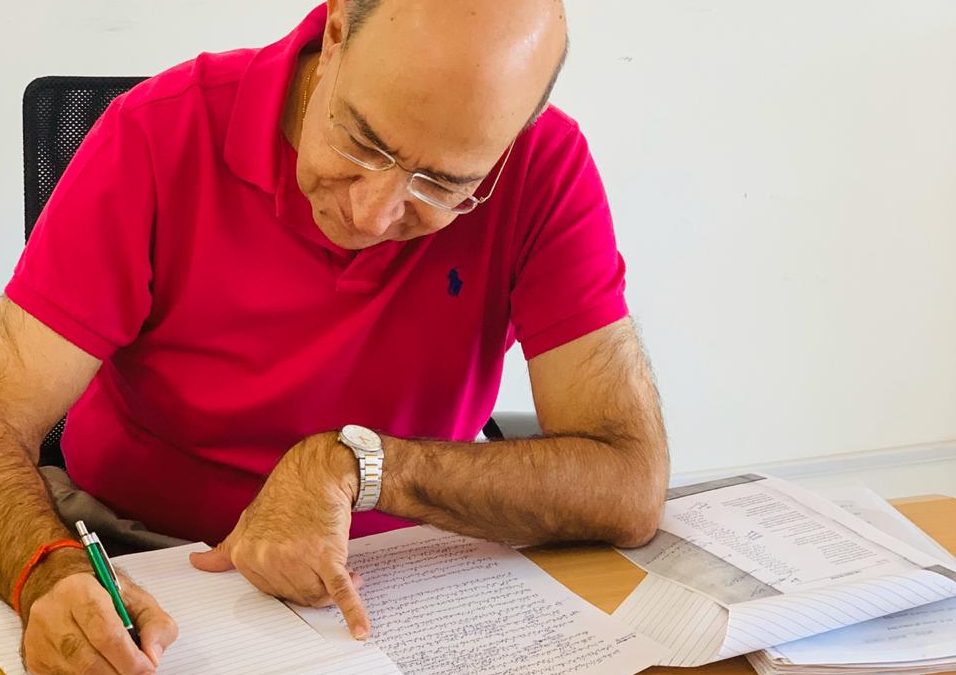In this blog Rakesh Saraf talks about the benefits of continuing learning well into one’s silver years.
I was 67 years old when I looked at my collection of old Urdu literature, with prints from the 1920s onwards, once again in despair. Was I going to the grave without knowing what they contained? During their lifetime, I would hear both my parents recite lines from Nazms and Ghazals that were moving, full of romance and anger and sadness and regret. Names like Iqbal, Ghalib, Faiz and even Majaaz were commonplace in my parents repertoire. I wondered at the generation that grew up learning such rich literature. Yes, I learned Tennyson and Shelley and others in English literature too, and did some writing myself, but they were nothing like what came out of the mouths of my elders.
It was then that I resolved much to the astonishment of my wife, my friends and family that I would learn Urdu and be able to appreciate the fine nuances of Urdu poetry. I asked my trusty assistant to find me a language school that could teach me Urdu. Three years on, I am now reading and trying to appreciate Faiz Ahmad Faiz, and will soon graduate to others of a more difficult ilk.
Learning, and the curiosity that drives it, I am now convinced is the only way for anyone to stay relevant in today’s world. If you do not have a pursuit that involves learning in some form or another, your mind will start to deteriorate. And language learning, particularly learning a language that is so rich in poetry and literature, such as Urdu or English (please forgive me if I have missed other languages) is, I am convinced, the best way to keep your mind fresh, enquiring and childlike in the pursuit of knowledge.
Growing up, I always respected my teachers as one was expected to do. But now looking back, I think the respect was not just about the gap in knowledge. As a schoolboy it was inevitable that my teachers were of another age group, another generation, who had gathered knowledge and wisdom beyond my ken, before I was even born. They also doubled as authority figures in my life, much like my parents. Hence, it was not just physically that one looked up at them. Emotionally and intellectually they were my superiors and I had no doubts about this. I feared them, loved and respected them, or sometimes was just in awe of them.
Today, being taught by someone who is half my age or even less than that does not seem unnatural. I have sent 60 something friends to learn from 20 somethings and 30 somethings at the same language school, Zabaan, and they have loved the experience. No one has ever said anything like “Oh she is too young to teach me,” They too have discovered the magic potion of learning well into your silver years. Surprisingly, doing homework is something that has again come naturally to me at this stage of my life. Moreover, being contrite when I have forgotten to do so is also an emotion that seems natural even if I have not felt that way in 50 years or more.
While my body continues to challenge me, my mind is back to being childlike and inquisitive. I ascribe this to the magic potion of learning.


Congratulations for a very well written blog. I totally agree with you. I must acknowledge with gratitude for your inspiration that lead me to join Urdu classes at Zaban.
Enjoying the experience thoroughly.